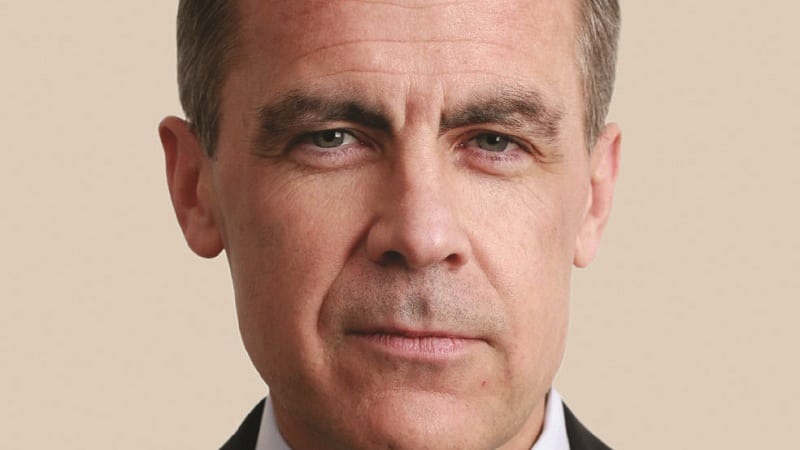During a speech to the Scottish Economics Conference at Edinburgh University, Carney (pictured) said the cryptocurrency bitcoin has fed a “global speculative mania” that has encouraged a proliferation of more cryptocurrencies.
He explained that while some of the underlying technologies are exciting, currently “crypto-assets raise a host of issues”, including consumer and investor protection, market integrity, money laundering, terrorism financing and tax evasion.
The extreme volatility faced by bitcoin earlier this year has raised questions as to where cryptocurrencies are headed. With no intrinsic value or external backing, Carney said their worth rests on beliefs regarding the future supply and demand.
In the speech titled ‘The Future of Money’, he stated that the BoE’s financial policy committee is considering the risks posed to the UK’s financial stability, while internationally, the financial stability board will do the same and report to the G20 in Argentina later this month.
“At present, in my view, crypto-assets do not appear to pose material risks to financial stability,” Carney said. “This is in part because they are small relative to the financial system.
“Even at their recent peak, their combined global market capitalisation was less than 1% of global GDP.”
However, Carney stated that while major UK financial institutions currrently have minimal exposures to the cryptocurrencies, financial stability risks could rise if retail participation significantly increased.
He added: “A better path would be to regulate elements of the crypto-asset ecosystem to combat illicit activities, promote market integrity, and protect the safety and soundness of the financial system.
“The time has come to hold the crypto-asset ecosystem to the same standards as the rest of the financial system. Being part of the financial system brings enormous privileges, but with them great responsibilities.”
Industry view
Gary McFarlane, cryptocurrency analyst at Interactive Investor, said that Carney’s “unequivocal comments” urging regulatory oversight should be welcomed as a positive development for the crypto space.
He explained that this will ensure more visibility on the scope of the regulatory proposals after discussions at the G20, “although as Carney says, there are different views among central bankers and the regulatory authorities”.
“Carney is on the side of regulation not isolation because he doesn’t want to stifle innovation,” he said. “Crypto industry participants will be relieved to hear that.”
However, McFarlane argues that the governor explicitly mentions holding exchanges to the same standard as others who trade securities, which could mean protection and security for investors but at much higher costs for exchanges and could force some out of business.
McFarlane added: “He also targeted initial coin offerings for attention as it is perhaps the riskiest area of all for retail investors and tough regulation should be welcomed, although there will be those who might worry that accredited investor provisions could be introduced that stop small investors getting a look in.”
While there is reason to caution, McFarlane said that regulating crypto is a “wise move not so much because it forestalls a threat to the financial system”, but because it will drive out bad practice and the fraudsters, which should ultimately make the sector more attractive to mainstream investors.
Nigel Green, founder and CEO of deVere Group and Crypto app, agreed. He said: “Governments and financial regulators around the world are increasingly focusing their attention on cryptocurrencies. Their vital work to warn investors of potential risks, to crackdown on criminal activity, and to potentially establish regulations must be championed.”
Green stated that since the launch of bitcoin in 2009, digital currencies have been operating in a “regulatory vacuum” but hopes this will change as international financial watchdogs respond to the growing interest in cryptocurrencies.
“To my mind, there is no question that regulation is necessary and is on its way,” he added. “It is clearly an area in which there is an enormous need for a robust international regulatory framework and strict ongoing supervision.”







